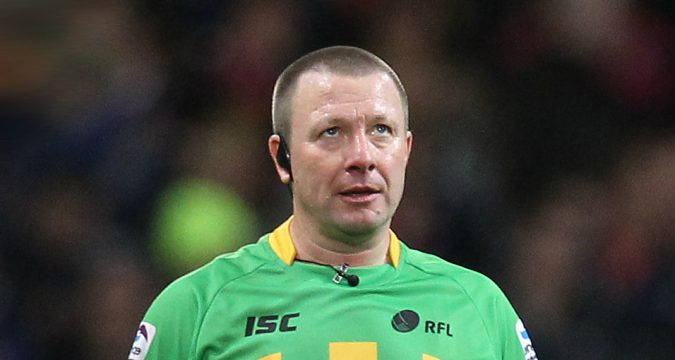 THERE is a “massive amount of support” for the new law changes ahead of the 2019 season, according to RFL head of match officials Steve Ganson.
Golden point extra time, shot clocks and a reduction in the number of interchanges from ten to eight are some of the main changes for the new campaign.
Shot clocks will be visible at all 12 Super
THERE is a “massive amount of support” for the new law changes ahead of the 2019 season, according to RFL head of match officials Steve Ganson.
Golden point extra time, shot clocks and a reduction in the number of interchanges from ten to eight are some of the main changes for the new campaign.
Shot clocks will be visible at all 12 Super Shot clocks shown to work, claims Ganson
 THERE is a “massive amount of support” for the new law changes ahead of the 2019 season, according to RFL head of match officials Steve Ganson.
Golden point extra time, shot clocks and a reduction in the number of interchanges from ten to eight are some of the main changes for the new campaign.
Shot clocks will be visible at all 12 Super
THERE is a “massive amount of support” for the new law changes ahead of the 2019 season, according to RFL head of match officials Steve Ganson.
Golden point extra time, shot clocks and a reduction in the number of interchanges from ten to eight are some of the main changes for the new campaign.
Shot clocks will be visible at all 12 Super 